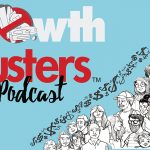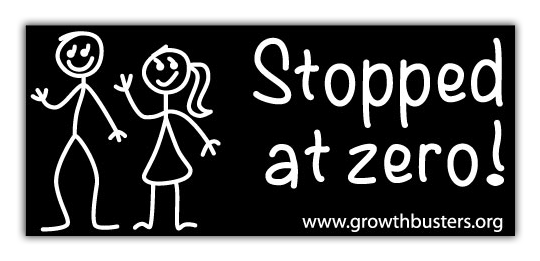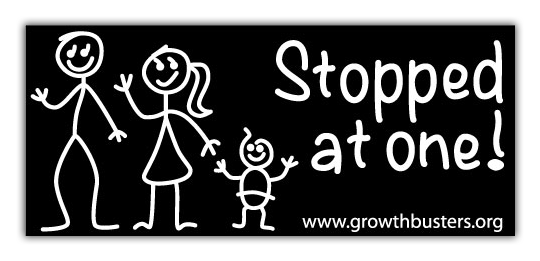
Climate Change Will Take Food Off Your Table (Podcast Episode 27)
Will you be able to feed your family in ten or fifteen years? Mass starvation in industrialized countries due to climate change – in the near future – is not something we read or hear about. But it’s a real probability, according to Michael Brownlee, author of Taking Back Our Food Supply: How to Lead the Local Food Revolution to Reclaim a Healthy Future. In this fascinating conversation Brownlee explains that not only is the global industrial food system the largest contributor to climate change; it also will not be able to feed us as we weather the storm.
In the face of this, Michael believes “we need to stop participating in the current system, and build regional, localized food systems…. Building our own regional food system is a matter of life and death.” And that involves much more than farmer’s markets and CSAs. Brownlee also wrote The Local Food Revolution: How Humanity Will Feed Itself in Uncertain Times, published in 2015. He and partner Lynette Marie Hanthorn have launched the online Local Food Academy, to identify, train and support leaders of the local food revolution.
The newest book, Taking Back Our Food Supply, will be available in book stores beginning around Earth Day (April 22, 2019).
Michael Brownlee aptly described our situation in this paragraph from The Local Food Revolution:
“Today we are living in a moment of historic transition. We are moving from a food and farming system that erodes soil, wastes water, diminishes biodiversity, wastes fossil fuels, spews carbon, relies on mechanization, modifies genes, pollutes water and air, poisons the land, depletes the spirit, destroys community, and creates economic disparity … to a food and farming system that restores and rebuilds soil, recycles and conserves water, increases biodiversity, sequesters carbon, produces its own energy, relies on human labor, breeds for resilience, saves seeds, purifies the water and the air, heals the land, feeds the spirit, builds community, and creates economic parity.”
Audition to become a co-host of the GrowthBusters podcast.
LINKS:
Taking Back Our Food Supply by Michael Brownlee
The Local Food Revolution by Michael Brownlee
Michael Brownlee episodes on Conversation Earth radio series & podcast:
Surviving a Hostile Climate on Local Food
Running Out of Gas – GrowthBusters Episode 26
Forum – Tackling the Population Taboo: Creating a Sustainable Future for Children
Writing by Michael Brownlee:
Igniting a Revolution in the Way Humanity Feeds Itself
Reclaiming the Future: How to Lead the Local Food Revolution in Your Community (free e-book)
GrowthBusters Earth Day Screenings:
Colorado Springs, CO – April 8 at the Tim Gill Center for Public Media
Pittsboro, North Carolina – April 23 at the Chatham Community Library
Subscribe (free) so you don’t miss an episode:
Tags: Climate Change, local food, sustainability
Trackback from your site.








Evan Kirby-Smith
| #
Dave,
Thanks for exploring this subject. I have felt for some 25 years now that food production was one of the most, if not the most, important aspect of sustainability. It is for this reason that I have dedicated my life to healthy food production. I started out with a degree in Agronomy with a Sustainable Agriculture emphasis. I make my living in part as an organic compliance inspector which unfortunately has me creating a rather large carbon footprint traveling from farm to farm but allows me some influence in the promotion of alternative agriculture production. I also operate my own small-scale half acre organic production farm for sales at farmer’s markets in my area of Southern California. I operate the farm nearly single single-handedly. I do this in part because I love doing it, but I also do it because it gets me out there to get some exercise and it provides me incentive to eat more healthy as I cannot sell all of it, and lastly I hope to serve as an example to others that everyone can with not too much effort grow a significant portion of the food we all eat. I always found it silly that people would pay to exercise at a gym essentially accomplishing nothing with their energy and at the same time they can’t be bothered tend to their own landscape and hire gardener for this purpose. So, they pay to exercise and then pay more for someone else to exercise for them. Seems absurd to me. Why not fire your gardener (don’t fire Dave Gardener) and convert your landscape into an eatable landscape? We might be surprised at how much we can localize the food production system.
Your old pal,
Evan Kirby-Smith
Reply
Dave Gardner
| #
Thanks, Evan. We should discuss your lifestyle in a future episode. How much time do you think you invest in tending your 1/2-acre?
I’m hoping we might someday have a “farm-my-yard” program in my community that matches people who want to grow food but don’t have the land with people who “have no time” to tend a garden but have the real estate for it.
Reply
Jeorge
| #
It should be clear to any realists listening to this podcast that pretty much none of Brownlee’s ideas will be implemented until AFTER the collapse. There will likely be a die-off starting sometime in the next 15 years, possibly lasting several decades as the global industrial civilization stalls out and begins unwinding and cannibalizing itself. Lets stop trying to avert it — it’s a natural process after all — and instead work on refining the skills that will be needed once the trucks stop running and farmland becomes affordable again along with humans field labor.
Reply
Dave Gardner
| #
I think you and Brownlee are pretty much in agreement, Jeorge. Brownlee doesn’t think we’ll avert collapse, but he does see value in starting now to develop the system that may serve some through the ordeal, and will define the new, post-collapse food system.
Reply
Kythe Mackenzie
| #
I’m more worried about the animals than the people. imagine living in a world where all other inhabitants were terrorists or some other equally antisocial type. that’s what is like for them
Reply
Heinz
| #
Another interesting podcast Dave. A few comments for what they are worth:
– Timing of events of the type that those of us who can join the dots are concerned about is fraught, as Paul Erlich and the Club of Rome well know. I don’t consider myself to be a ‘Prepper’ but I am very aware that Proper Prior Preparation Prevents Piss Poor Performance, which is just another version of the Scouts motto ‘Be Prepared’. So learning basic self reliance skills like growing food is a given. The reduction of our ecological footprint and eating significantly better quality and higher nutrition food are major bonuses.
– Growing your own food in a changing climate is not easy. 10 years ago we installed water tanks with 6 months capacity based on average local rainfall data plus a factor of safety. This was supposed to get us through the summer and autumn period which was dry, but it would still rain every couple of weeks. In the last 4 years we have gone consistently without rain for 3 to 4 months over summer and as a result of not receiving regular top ups we run out of water by the middle of March and it is now unlikely to rain in any significant way until the end of May. Compounding the issue is that days and nights have been warmer by 1 to 2 degrees Celsius so soil moisture loss occurs at a faster rate. So, there is a need for even more water to keep vegetables alive. In a warming world this is not a comforting scenario.
– Growing enough food for a year plus a buffer in case of crop failure, the probability of which increases significantly in an unpredictable climate, is not easy either. The ever growing number of dystopian films show survivors having a garden with 1 or 2 tomato plants and a handful of carrots. What rubbish! To feed a family of 3 consistently you need a significant area of land. My wife and I agree that if we were to feed ourselves from the garden alone one of us would have to dedicate most of our days to the task. This includes not only planting and watering (you can’t always run irrigation to every single plant) but preserving, composting etc. In the television series ‘Living with the Amish’ a British teenage girl complains that, “All they do all day, every day is canning!” Yep, when the crop is ready to come off that is the reality of growing enough to keep yourself alive.
– And finally, a strong community of people willing to do the hard work of staying alive is going to be essential from a personal security viewpoint. Are the survivors going to pick up garden tools or guns?
Sorry to be such a realist (I’m not a pessimist, I’m just a big picture person who can join the dots). Again, keep up the great work Dave.
Regards
Heinz
Victoria, Australia
Reply
Kythe Mackenzie
| #
Mike Brownlee included ‘ big ´ government in with industriel agriculture, industrial food production et al. It would be better to say merely Government. Small government could equally be their ally.
The negative associations of the descriptor ´big government’ is a gift for the likes of Trump that would destroy the EPA etc. Also Brexiters
What we need is good government. Big or small is irrelevant. This term invites digressions, does not specify anything useful.
Big government could be a fantastic govt or a terrible one. The same for small. And btw think India or africa for small govt.
Regardless if size , when government functions well we dont know its even there.
Thanks for everything and let’s stop vilifying government and fix it. It the only way we get it to work for us rather than corporate interests.
Reply
Joshua Spodek
| #
Thank you, Dave, for another difficult and challenging yet poignant episode.
I believe it underscores the importance of leadership regarding the environment. Facts and figures rarely motivate people, even to help themselves, say to stop smoking or eating too many calories.
Yet, historically, people have motivated large numbers of people.
I think we will get results when we shift to using techniques that work, not merely sharing facts or foretelling doom. That’s why I’m putting all the effort I can into developing leadership techniques that motivate and influence people’s behavior. Of course, I support science, education, and legislation, and even innovation and technology when it actually changes the system and doesn’t simply make it more efficient, but changing behavior comes from changing personal beliefs, emotions, stories, and such.
I value your podcast, though I wish it weren’t so necessary.
Josh
Reply
Dave Gardner
| #
Thanks, Josh. We had an interesting discussion about “framing” after last night’s “Pre-Earth Day screening of GrowthBusters by the Independent Film Society of Colorado. I hope to dedicate a future episode of the GrowthBusters podcast to the topic. Been thinking about you, however, on another subject – your commitment not to fly (now in its 4th year, I believe). I’d also like to do an episode just about air travel. Might you be interested in guesting on that episode? I’d like to also find and invite someone with a lot of expertise on carbon footprint of various forms of transportation.
Reply